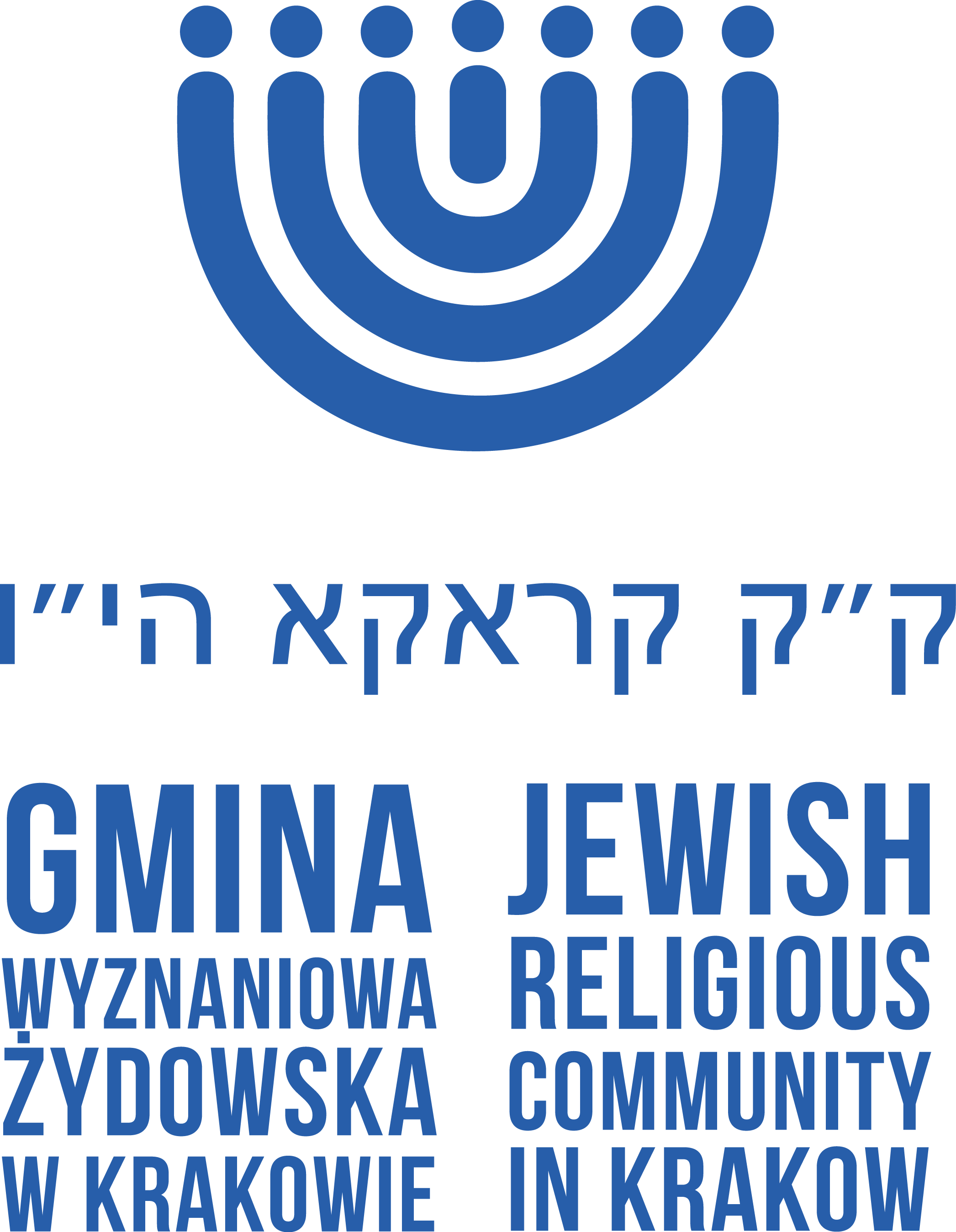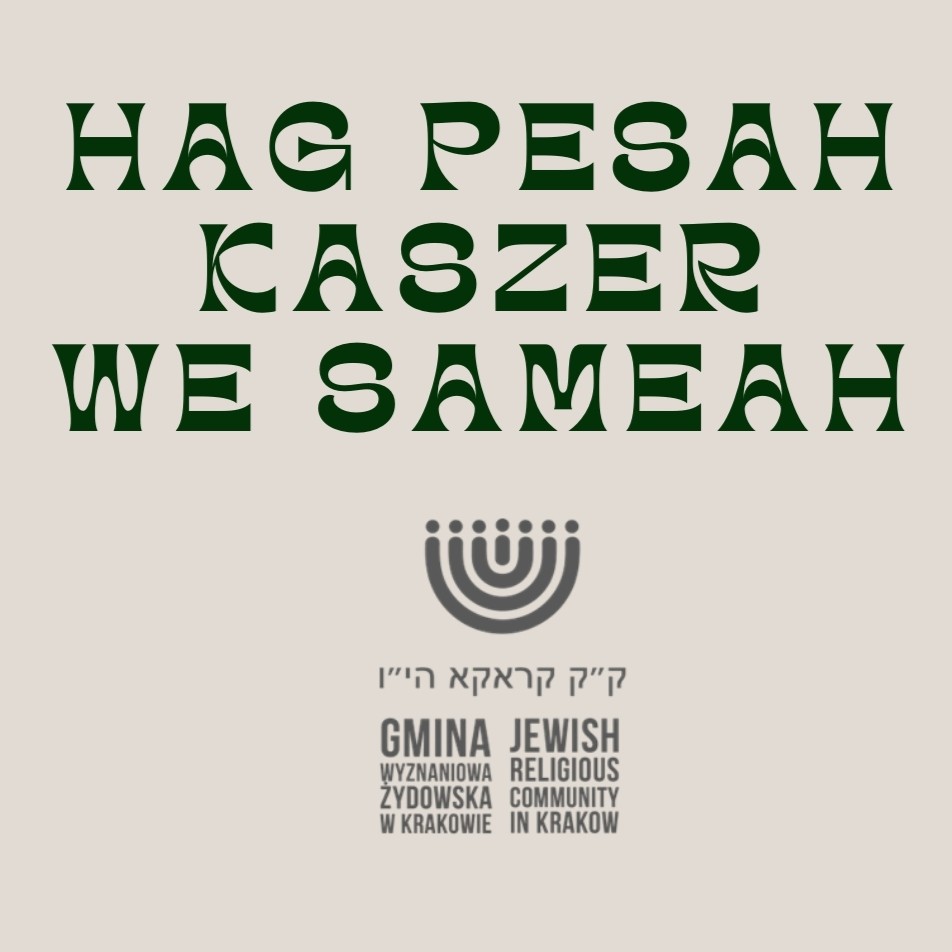Soon, the Passover holiday, which begins on the 14th day of the month of Nissan (Evening of Passover on the 14th of Nissan) and lasts seven days in Eretz Israel. In the diaspora, for example in Poland, it lasts eight days. In the current year, i.e. 5785 of the Jewish calendar, which falls in the years 2024/2025 of the Gregorian calendar, the beginning of the holiday will fall on April 12 (Evening of Passover on April 12).
In our Community, this holiday is celebrated very solemnly. Seder dinners are held in the communal Kupa synagogue, while prayers are also held in the communal Remuh synagogue. A few days before the start of the holiday, members of the Community receive matzo and wine, of course after paying the dues. Everything must be as the law and tradition require. First, our kitchen, located at the KUPA synagogue, is kosherized, and then the Community members ceremoniously burn chametz.
It is on Passover that it is forbidden to eat or possess so-called chametz (i.e. bread and beer). This results from the commandment contained in the Torah, the Book of Exodus (Heb. Shemot): “For seven days no leaven shall be found in your houses. For whoever eats leavened food shall be cut off from the community of Israel. You shall not eat anything leavened. In all your dwellings you shall eat matzot”. Why? Cleansing your home of chametz also has a symbolic dimension, because every person has an inclination towards evil and no matter how hard they try to act properly, they still have a tendency towards injustice, arrogance, revenge and enslavement of others. These traits characterized the persecutors of the Jews, the Egyptians, which were symbolized by chametz (leaven), the basic ingredient of bread. According to tradition, bread is an invention of the Egyptians, a symbol of the triumph of slave owners, and therefore the bread of evil people. The ban on eating or even possessing bread during Passover is a symbolic rejection of Egypt and the slavery associated with it.
Okay, so what is chametz? It is a product made from one of the five basic grains – wheat, rye, barley, spelt and oats, which has been in contact with water for at least 18 minutes, because after that time the fermentation process begins. During Passover, you cannot use dishes and kitchen utensils that have been used throughout the year and have had contact with chametz, because it is assumed that they may contain particles of it. It is recommended to have a set of dishes and kitchen utensils specially designated for this holiday. Unfortunately, this is not always possible, so you should always kosher the kitchen and all utensils used to prepare food before Passover, i.e. remove even the smallest amounts of chametz from them. In reality, this involves a thorough cleaning.
The Seder dinner is much more than just an ordinary meal, it is a family, national and religious holiday. Along with traditional foods and meticulous meal planning, the Seder dinner is the highlight of Passover celebrations. This is when virtually every Jewish family gathers around the holiday table to celebrate this momentous occasion. Despite everyone reading the same Haggadah (the “story” that, when read during the Seder, fulfills the commandment to tell one’s son about the Exodus from Egypt) and eating the same matzo, the customs of each community vary greatly. Let’s take a look at some of these fascinating traditions.
– Jews in Persia have a custom of taking bunches of shallots (also known as shallots, shallot onions, or scallions), and when they get to the part of the Haggadah that describes what would happen if G*d hadn’t taken us from the Promised Land, they start singing Ma Nishtana – and the “beating” begins! Each person playfully hits the person next to them with a shallot, symbolizing the whips of the Egyptian taskmasters.Jews in Morocco, raise the Seder plate and pass it over each person’s head.
Jews in Tunisia, set aside some charoset (a mixture of sliced apples, pears, and walnuts mixed with a little honey and wine, which resembles the mortar used by Jews to make bricks in Egypt), at the end of the Haggadah, and smear it on the door frame near the mezuzah, reminiscent of the blood placed on door frames in Egypt.
Jews in Iraq, take extra measures to protect the afikoman. The head of the household appoints one of the children as guardian, warning them that if it is lost, stolen, or eaten, they will have to pay a heavy fine. However, if they manage to secure it, the children will receive a gift.
– Jews in Syria hold a special ceremony after the afikoman is uncovered. They place a piece of matzah in a thin linen bag and each person reenacts the Exodus in turn: They place the bag on their left shoulder and say, “It represents the burden our ancestors carried when they left Egypt.” They are then asked, “Where are you from?” to which they reply, “From Egypt.” However, before they answer the next question, “Where are you going?”, they shift the bag from their left shoulder to their right and declare, “To Yerushalayim!” The entire table then cries out in unison, “Next year in Yerushalayim!” Expressing the hope that next Passover we will all be in Yerushalayim with the coming of the Messiah. May it happen as soon as possible!
On the occasion of the holidays, we wish all members and friends of the Jewish Religious Community in Krakow and our friends health, joy and all the best. Chag Pesach Kasher in Sameach
Chairwoman of the Board of the Jewish Religious Community in Krakow Helena Jakubowicz and the Board.


